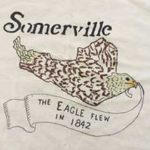
Eagle Feathers #216 – Mr. Philadelphia
By Bob (Monty) Doherty
To say that Russell Conwell made some people feel good about themselves is a colossal underestimate. He was best known as the founder and first president of Philadelphia’s Temple University, founder of an affiliated church, two hospitals, and author of the inspirational speech, Acres of Diamonds, which he gave over six thousand times. During his life time, he lectured to over eight million listeners, educated over ten thousand students and repeatedly turned down requests to name the school after himself.
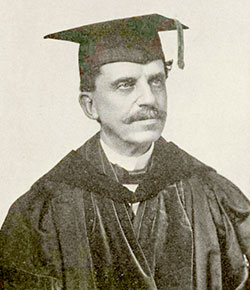
He was born in South Worthington, Massachusetts and educated at Wilbraham Wesleyan Academy and Yale University. Before the Civil War, his parents used their home as a station on the underground railroad. He married and moved with his wife Sarah to Somerville, Massachusetts, where they worked in real estate and started a city newspaper, The Somerville Journal.
While living on College Hill, he wrote History of the Great Fire in Boston, one of his ten books. This conflagration of November 9-10, 1772 destroyed 776 buildings. He and his wife had two children, a daughter and a son, Leon, who would later become a member of the Massachusetts House of Representatives and the 19th Mayor of Somerville.
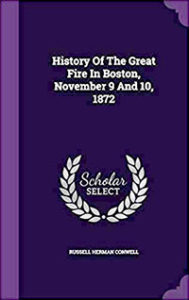
When war clouds came, Russell helped organize and captain Company F of the 27th Regiment Massachusetts Infantry, better known as the Mountain Boys. He rose to Lieutenant Colonel, a patriot who was twice wounded in battle during the Civil War. This life-altering experience and the death of his young wife changed his course of atheism to religion. Before leaving Massachusetts, he established a West Somerville Mission.
He became a practicing minister, first in Lexington, and then on to Philadelphia. There he began lecturing in the basement of a warehouse. In time, he had so many followers that people scalped tickets to listen to his inspirational advice. His self-confidence teaching method was a prelude to Dale Carnegie’s style.
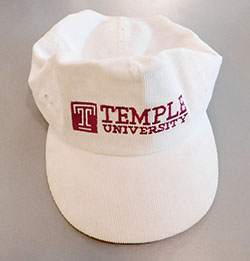
In 1876 Conwell asked one of his students, Charles Hires, a part-time druggist, to concoct a soft drink substitute for alcohol. He wanted It to appease the Temperance Movement and appeal to the rough and tumble Pennsylvania miners. Hires did as his friend asked and returned with a beverage he referred to as “herbal tea.” Conwell suggested that the name be changed to “root beer,” a product to be marketed to tough laborers. Today, hundreds of root beer recipes stock our shelves, one of which is our local Tower Root Beer. Hires became America’s second soft drink, preceded only by ginger ale. For decades there was a Hires warehouse behind Trum Field.
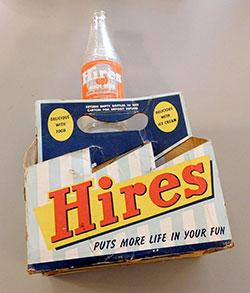
Somerville’s Conwell Street, Conwell Avenue, and the former Conwell School carry on the family name, as well as Gordon-Conwell Theological Seminary in South Hamilton, Massachusetts. In 1923, two years before his death, Conwell was honored with The Philadelphia Award created by Edward Bok which is the City of Brotherly Love’s equivalent to the Nobel Prize. To them, he was their “Mr. Philadelphia.”















Hi Bob,
I enjoyed your piece about Russell Conwell, especially as you related his role in naming Hires Root Beer. Charles Hires was an ingenious entrepreneur to be sure. But I doubt whether “Hires Herb Tea” would have achieved as much success in the market place as his root beer.
My recent biography, “Charles Hires and the Drink that Wowed a Nation” describes this fateful event and the life-long warm relationship between the two men.
Best wishes,
Bill Double